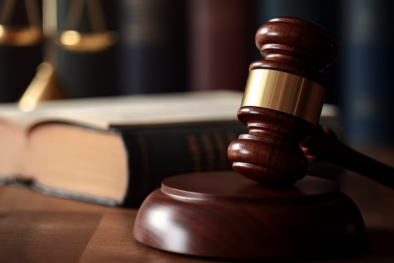
EU General Court Annuls Council Sanctions Listing for the First Time on ...
For the first time in European sanctions practice, the Court explicitly held that the Council of the EU…
Interview with attorney Maxim Rakov, partner at Elbert-Nazaretsky-Rakov Law Firm, former legal advisor to Israel’s National Security Council and former Military Prosecution officer
A: These are two parallel processes, and both are critically important. We must complete the investigation into possible abuse – this is a criminal offense if it occurred. If it didn’t happen, then it’s a blood libel that needs to be refuted.
Regarding the leak, there are two aspects: who leaked the information and who lied to the court. From my perspective, the question of lying to the court is more important than the leak itself. When the Chief Military Prosecutor and other senior officials in an organized group decide to deceive the country, the press, and the court – this is extremely serious.
A: Yes, the Chief Military Prosecutor had the right to publish certain investigation materials through official channels. The fact that she didn’t do this and chose the path of an unofficial leak was foolish. But the leak itself might have only led to disciplinary measures. The real problem is the organized attempt to deceive the judicial system.
A: No, these things need to be separated. If the fact of abuse occurred, it doesn’t matter whether information was leaked or not – the criminal offense must be investigated to completion. Of course, this affects the atmosphere and may influence sentencing, but it shouldn’t affect the investigation itself or the determination of guilt.
A: The Defense Minister shouldn’t tell the Chief Military Prosecutor what to do. There’s a law that defines the functions of the military prosecution. It’s not a politician’s role to set the prosecution’s priorities.
Of course, the prosecution should protect soldiers, but the existence of independent investigations is one of the reasons why Israel argues that the International Criminal Court shouldn’t deal with Israeli soldiers. We have a system of independent oversight. If for some reason the military prosecutor is prohibited from investigating soldiers’ crimes, the International Criminal Court will come and say: “They don’t investigate, they’re forbidden toso now we’ll investigate.”
A: As a military prosecution officer, as a citizen of Israel, as a lawyer, I believe that soldiers of the Israel Defense Forces should not commit war crimes. If they commit crimes, this must be investigated and the guilty must be punished. If the army acts with impunity and does what it wants, we get anarchy. An army very quickly turns into a gang.
In my time, the military prosecution commanded great respect from the army, the Ministry of Justice, and the Supreme Court. Now we have the Chief Military Prosecutor arrested, the former Chief Military Advocate arrested, and the prosecutor who oversaw the investigation suspended. This is a serious blow to the institution’s authority.
Image source: TV screenshot